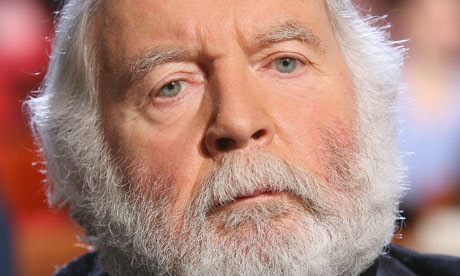
The Tyrant was awarded the Prix Goncourt in 1973, and Jacques Chessex remains the only Swiss author to have won the prize. It is set firmly in the canton of Vaud on the north shore of Lake Geneva (the story opens with the main character eating a plate of perches frites), in the tradition of the great CF Ramuz.
Jean Calmet, in his late 30s, is a classics teacher in Lausanne. To those who know him – one or two friends and students – all seems well; he is respected, liked and good at his job. But on the inside he is falling apart. Calmet's problem – his monomania – is his recently deceased father: the browbeating tyrant of the title. Initially, seeming to escape his past once his father is reduced to ashes, he begins a relationship with an art student but can't shake the feeling of being a fraud. He becomes irrational and isolated from a conformist and patriarchal world, culminating in the harrowing final scene. He suffers persecution complexes compounded by paralysing inaction and impotence, "separated from the others, deprived, guilty… like a humiliated child". All his life he lived in fear of the cruel patriarch but even in death the malign influence will not let up. Chessex was a poet, and this comes to the fore in wonderful descriptive passages calling up daily routines, the vineyards, rolling hills, wildlife and the azure skies above the lake and mountains. Martin Sokolinsky's fine rendition is equal to the task (even if he does mistranslate "hedgehog" as "porcupine" throughout).

